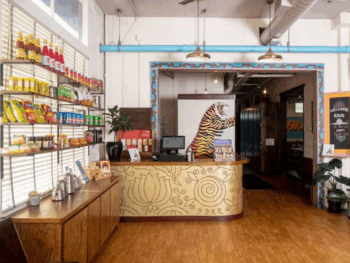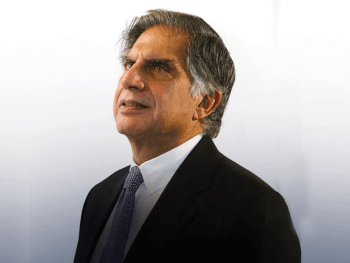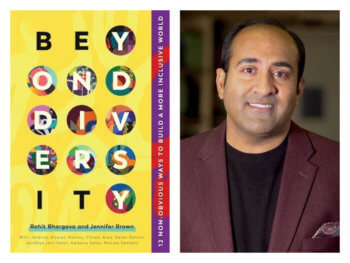
From Paan Shops To Tech Startups: How South Asians Are Reshaping North America’s Economy
Business Jul 08, 2025
South Asians significantly contribute to the North American economy through micro-businesses. These enterprises, typically small-scale and community-focused, are vital to economic growth, job creation, and cultural diversity across the United States and Canada.
The Economic Power Of South Asian Micro-Businesses
South Asians own a substantial portion of Asian American and Pacific Islander (AAPI) businesses. As of 2024, AAPI entrepreneurs own over 3 million firms in the U.S., employing approximately 5.2 million people.
While specific data on South Asian-owned businesses is limited, their impact is powerful in the hospitality, retail, technology, and professional services sectors. A standout statistic is that Indian Americans own over 50% of all motels in the U.S., underscoring their dominance in the accommodation industry.
Furthermore, the average Indian American household income is around $150,000, more than double the national average, reflecting broader economic success and entrepreneurial activity.
Types Of South Asian Micro-Businesses
South Asians in North America operate various micro-enterprises catering to cultural needs and mainstream markets. Examples include:
- Yoga Studios: Rooted in ancient Indian traditions, yoga studios offer wellness and cultural enrichment. Many Desi entrepreneurs are bridging Eastern philosophies with Western lifestyles through these studios.
Example: Yoga Vision Studio (Ontario) – Founded by South Asian entrepreneur Joty Bains, it blends traditional yoga with meditation and wellness programs rooted in Sikh and Hindu philosophies. - Paan Shops (Paanwallas): While more common in community hubs, paan shops are gaining popularity as niche businesses offering traditional Indian refreshments and snacks.
Example: Specialty paan shops like Desi Paankari in Brampton are turning paan into a boutique experience, offering fusion flavors (e.g., Nutella paan) and Instagram-worthy presentation. - Hair Salons and Makeup Artists (MUAs): From threading and bridal henna to high-end bridal MUA services, Desi-owned salons cater to South Asian and non-South Asian clients, especially around the wedding season.
- South Asian Grocery Stores: Small grocery stores offering Indian, Pakistani, Bangladeshi, and Sri Lankan staples are neighborhood lifelines for immigrant communities.
Example:
– Apna Bazar Farmers Market, NJ/NY
A Desi-owned supermarket chain with locations across the Tri-State area, catering to Indian, Pakistani, and Bangladeshi communities.
– Iqbal Halal Foods, Toronto
A South Asian staple offering a massive range of groceries, halal meats, and ready-to-eat meals. - Tutoring Services: Education is a cultural cornerstone, and many South Asian entrepreneurs run after-school tutoring services in math, science, and SAT prep.
Example: Many Kumon and Sylvan Learning centers across the U.S. and Canada are owned by Indian and Pakistani entrepreneurs who value supplemental education. - Event Planning & Catering: Many micro-businesses cater to the vibrant Desi celebration scene from lavish weddings to intimate pujas.
- Clothing Boutiques & Tailoring: Many specialize in ethnic wear and customized stitching, preserving cultural identity while offering personalized services.
These businesses, often family-run, create jobs, generate tax revenue, and enrich the social and cultural landscape.
The Entrepreneurial Spirit: Cultural And Structural Drivers
A combination of cultural values, migration dynamics, educational background, and community support fuels the entrepreneurial drive among South Asians in North America:
- Cultural Mindset Toward Business: Entrepreneurship is deeply rooted in South Asian culture. Many come from family backgrounds where owning a shop, managing a trade, or running a service business is common. Business ownership is often seen as a symbol of status, self-reliance, and intergenerational legacy.
- Immigration as a Motivator: Immigrants often face systemic barriers in traditional employment, like credential recognition, language nuances, and discrimination. Starting a business offers economic independence, flexibility, and a pathway to upward mobility when other doors are closed.
- Strong Community Networks: Desi communities tend to be tight-knit and have strong support systems. These networks provide access to startup capital (e.g., family lending, informal loans), a ready customer base (especially for cultural products and services), and mentorship and role models who’ve “made it.”
- Frugality and Resourcefulness: Many South Asians are raised with a mindset of “jugaad”—a Hindi/Urdu word meaning creative problem-solving or doing more with less. This leads to lean startups, efficient resource use, and high adaptability in changing markets.
- Educational and Technical Skills: Many South Asian immigrants are highly educated, especially in STEM fields, finance, and business. This gives them an edge in launching tech, e-commerce, consulting, and education ventures.
- Family as Workforce: In many Desi-run businesses, family members play an active role, reducing labor costs and ensuring trust and commitment within the workforce.
Spotlight On South Asian Women Entrepreneurs
South Asian women are increasingly making their mark in the entrepreneurial landscape. They lead ventures across various industries, from technology startups to cultural enterprises, challenging traditional norms and driving economic progress. Their success stories inspire and highlight the diverse contributions of the South Asian community to North America’s economic fabric.
- Sana Javeri Kadri, founder and CEO of spice company Diaspora Co., is redefining the “Made in South Asia” label by spotlighting indigenous regenerative farmers. Her company started with one spice, Pragati Turmeric from India, and has grown to offer 41 spices from 200 farms.
- Deepica Mutyala, founder of Live Tinted, launched the brand to create inclusive beauty products. Live Tinted became the first South Asian-owned beauty brand to launch at Ulta, receiving strong community support.
- Hetal Patel, co-founder of South Asian Fashion Week, promotes diversity and representation, providing South Asian designers a platform to expand their brands in North America.
Organizations like the Canadian South Asian Women’s Chamber of Commerce (CSAWCC) and Neythri support and amplify the work of South Asian women entrepreneurs, fostering professional excellence and community leadership.
Cultural And Social Impact
Beyond economics, South Asian micro-businesses enrich the cultural tapestry of North America. They introduce diverse cuisines, fashion, arts, and traditions, fostering multicultural understanding and appreciation. These enterprises often serve as community hubs, preserving cultural heritage while promoting inclusivity.
For instance, during the pandemic, many South Asian women in Toronto turned to entrepreneurship, setting up businesses that sell imported clothing, jewelry, or home décor and run educational programs for children, offering cultural classes in art, language, and religion.
Conclusion
South Asian micro-businesses are vital contributors to the North American economy. Through entrepreneurship, they drive economic growth, create jobs, preserve culture, and strengthen communities. Recognizing and supporting these enterprises is essential for fostering an inclusive and prosperous economic landscape.
Reference Links
-
- https://advocacy.sba.gov/2024/05/07/facts-about-small-business-asian-american-pacific-islander-ownership-statistics-2024
- https://iaimpact.org/issue/innovation-and-entrepreneurship
- https://insight.kellogg.northwestern.edu/article/south-asian-retail
- https://www.allure.com/story/diaspora-co-founder-sana-javeri-kadri-interview
- https://www.csawcc-cccfsa.ca/about-us
- https://www.forbes.com/sites/yolarobert1/2025/02/27/meet-the-south-asian-women-reshaping-business-and-culture-in-america
- https://www.indiaspora.org/wp-content/uploads/2024/09/Indiaspora-Impact-Report_Full.pdf
- https://www.newpowerlabs.org/equity-shots-blog/aapi-month
- https://www.neythri.org/post/introducing-neythri-a-community-by-and-for-south-asian-womxn
Author
Internationally celebrated, award-winning media personality and author of several business and lifestyle articles, Tushar Unadkat, is the CEO, Creative Director of MUKTA Advertising, Founder, and Executive Director of Nouveau iDEA, Canada. He holds a Master of Design from the University of Dundee, S...

















































































































